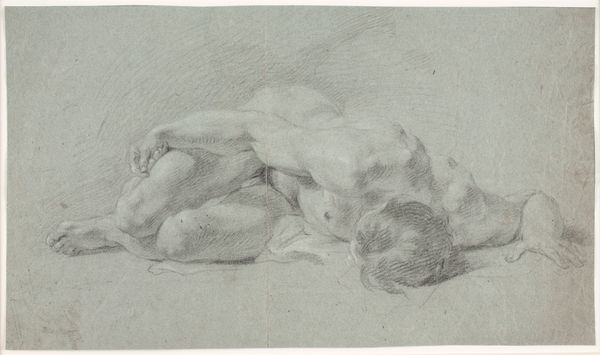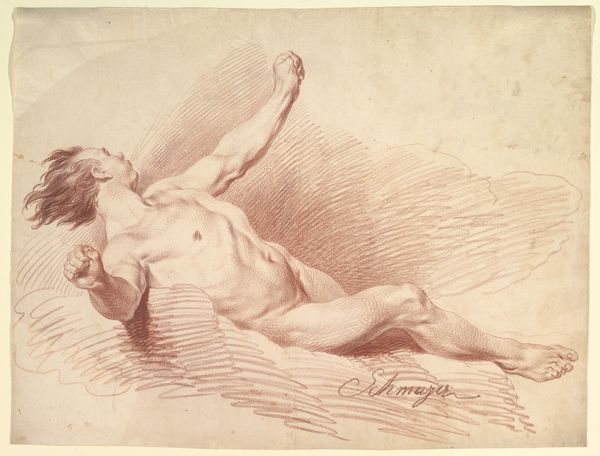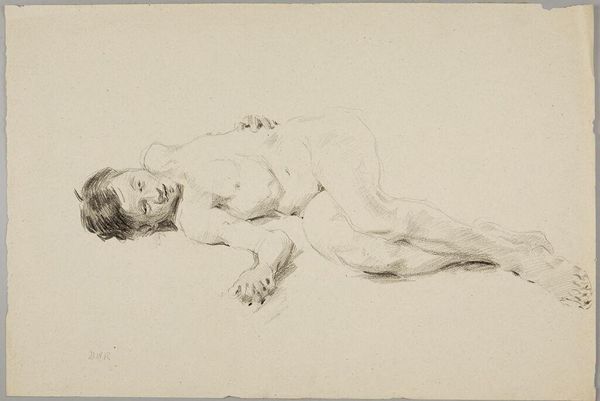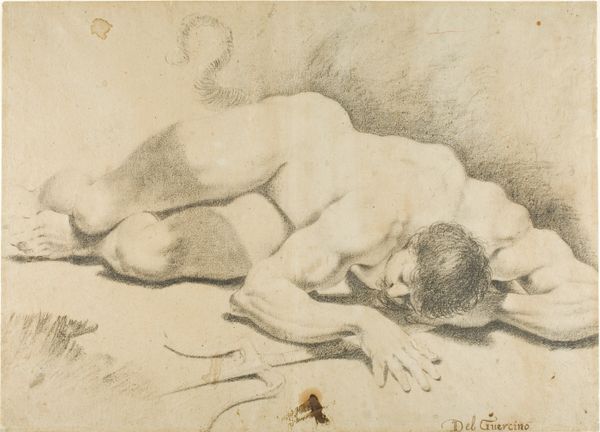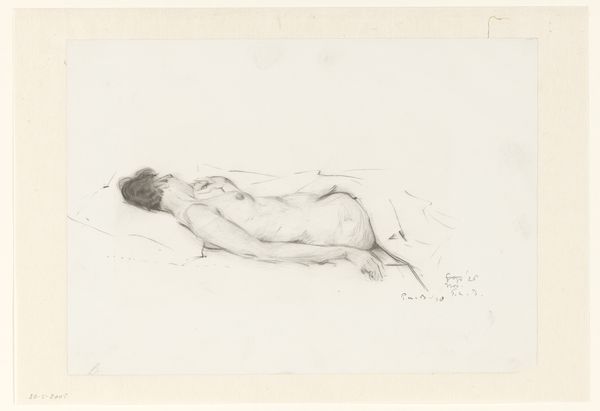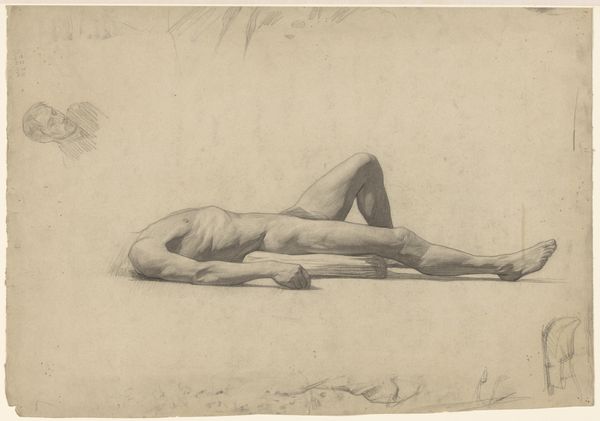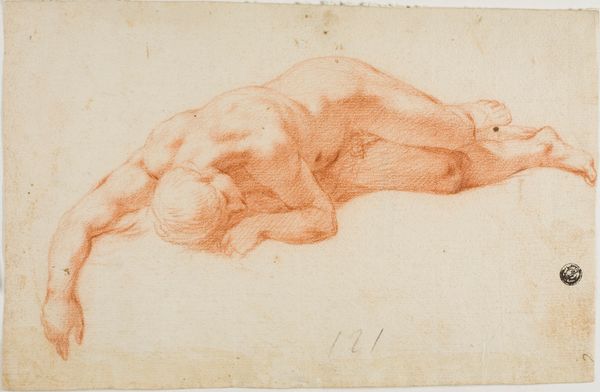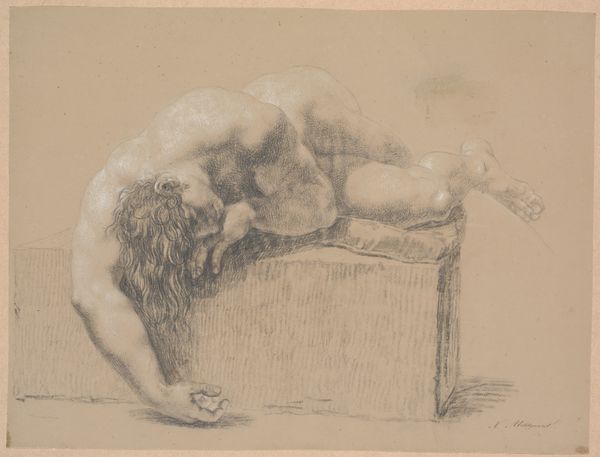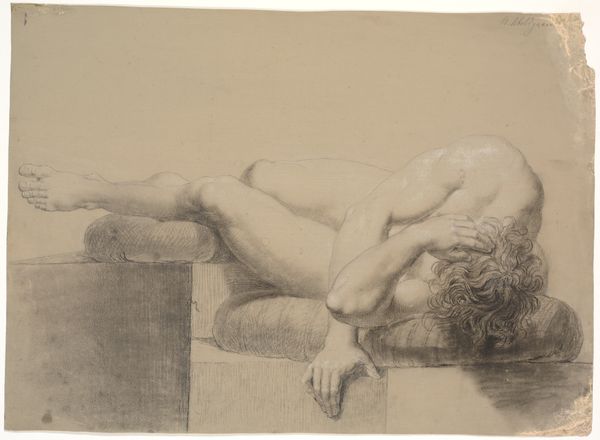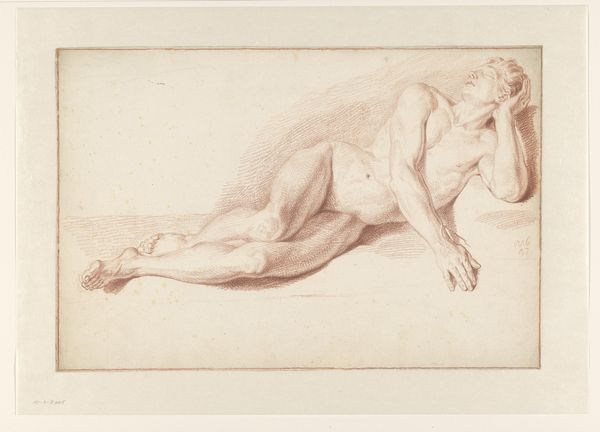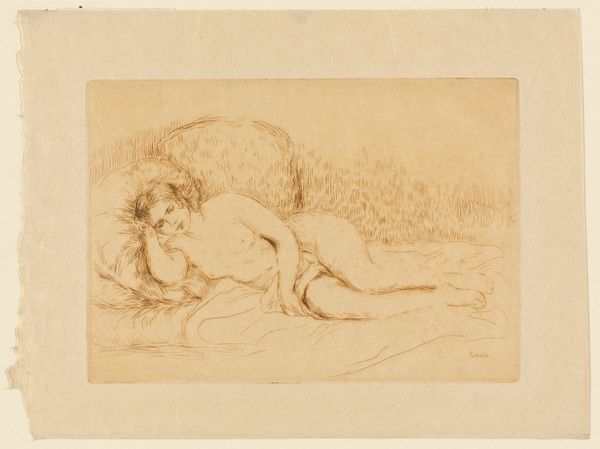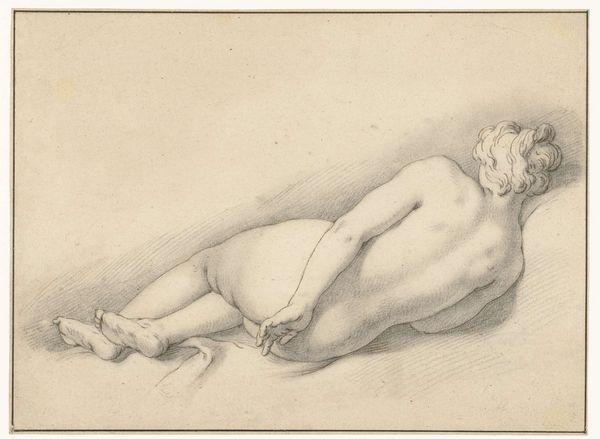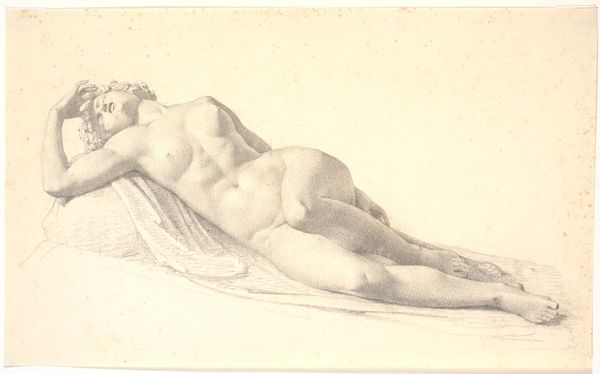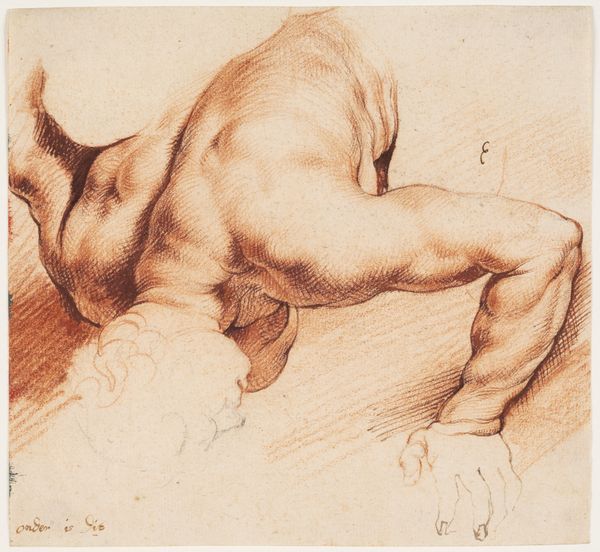
drawing, pencil
#
drawing
#
pencil sketch
#
charcoal drawing
#
pencil drawing
#
pencil
#
academic-art
#
nude
Dimensions: height 427 mm, width 545 mm
Copyright: Rijks Museum: Open Domain
Jean Augustin Daiwaille made this print of a reclining nude man using etching and drypoint. Its creation is situated within a longer history of the academic nude, originating in the Renaissance. Nude studies such as this one were crucial to the artistic establishment of 19th-century Europe. The nude, with its roots in classical antiquity, was seen as foundational to the grand traditions of Western art. The genre was upheld by art academies where young artists would learn anatomy and hone their skills by drawing from life. By mastering the nude, artists could demonstrate their knowledge and skill, thus climbing the rungs of the institutional ladder. This print exemplifies the complex politics of imagery. While seemingly timeless, the nude was always tied to specific cultural and institutional contexts. Art historians can consult a range of resources, from archival records of art academies to social histories of the period, to further illuminate this print’s meanings and its place within a broader network of social practices.
Comments
No comments
Be the first to comment and join the conversation on the ultimate creative platform.
